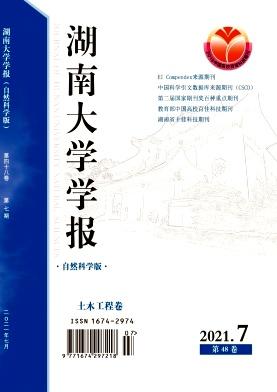Solution to the Klein–Gordon Equation Using FEM
引用次数: 0
Abstract
The main objective of this paper is to present an approximate numerical solution of the Klein-Gordon equation. For this purpose, the basic concepts associated with the numerical method used to obtain the approximate solution will be presented initially. In our case, we considered as a hypothesis the fact that using the finite element method and in particular the Galerkin method, it is possible to perform a superb numerical approximation of the solution of the Klein-Gordon equation. For this purpose, we will present some of the solutions that have been obtained by employing the modified Adomian decomposition method, via a transformation and Exp-function method and comparison with Adomian's, and using the variational method. This will allow better understanding of the effectiveness of the finite element method because the solutions will be represented in space and time. The novelty results from the fact of being able to take the solutions known as initial and boundary conditions and observe that effectively at great lengths the solution stabilizes at zero and that over time the approximate solutions stabilize. Finally, the simulations obtained by the finite element method indicate that the Klein-Gordon equation is damped nonlinear, its solution stabilizes at and and for short times, the function remains close to zero. Keywords: approximate solution, finite element method, nonlinear equation, the Klein-Gordon equation, the Galerkin solution. https://doi.org/10.55463/issn.1674-2974.50.7.23Klein-Gordon方程的有限元解法
本文的主要目的是给出Klein-Gordon方程的近似数值解。为此,将首先介绍与获得近似解的数值方法相关的基本概念。在我们的例子中,我们考虑了一个假设,即使用有限元方法,特别是伽辽金方法,可以对Klein-Gordon方程的解进行极好的数值近似。为此,我们将介绍采用改进的Adomian分解方法,通过变换和exp函数方法并与Adomian方法进行比较,以及使用变分方法得到的一些解。这将有助于更好地理解有限元方法的有效性,因为解将在空间和时间中表示。它的新颖之处在于我们可以用初始条件和边界条件的解观察到在很长一段时间内解稳定于零并且随着时间的推移近似解稳定。最后,有限元模拟结果表明,Klein-Gordon方程是一种阻尼非线性方程,其解在和处稳定,并在短时间内保持接近于零。关键词:近似解,有限元法,非线性方程,Klein-Gordon方程,Galerkin解。https://doi.org/10.55463/issn.1674-2974.50.7.23
本文章由计算机程序翻译,如有差异,请以英文原文为准。
求助全文
约1分钟内获得全文
求助全文

 求助内容:
求助内容: 应助结果提醒方式:
应助结果提醒方式:


